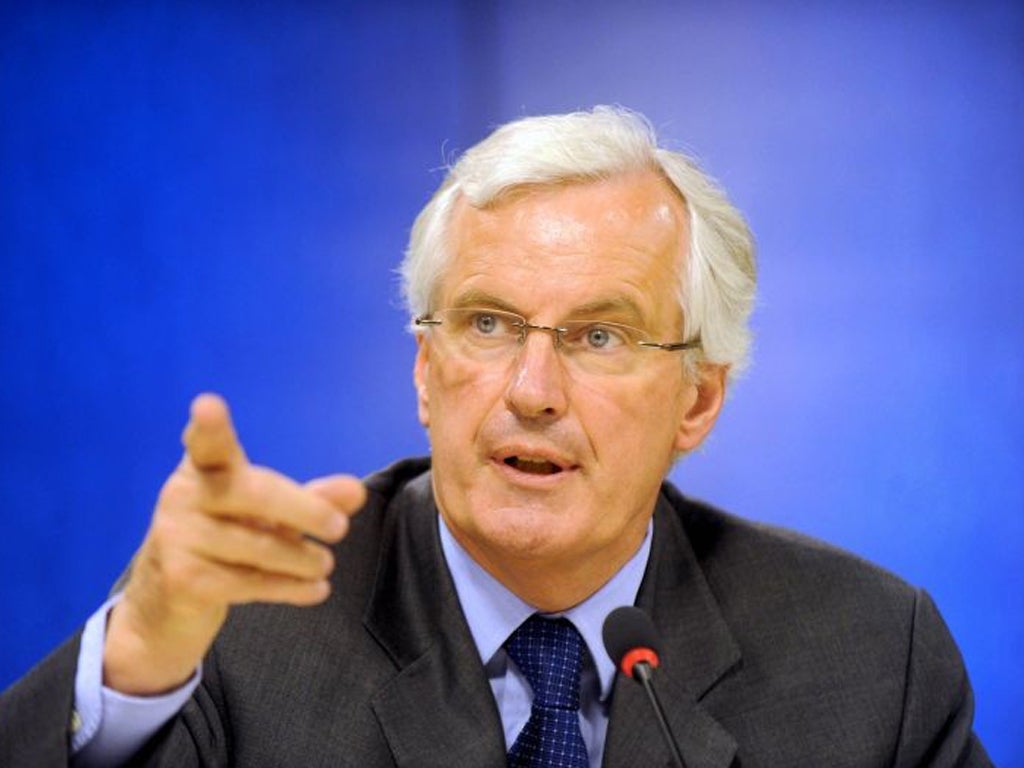Michel Barnier will be a tough Brexit negotiator, but he'll meet his match in David Davis
With Theresa May’s visits to Berlin and Paris, the hope is that much groundwork will be established that Mr Barnier will not be able to undo

Your support helps us to tell the story
From reproductive rights to climate change to Big Tech, The Independent is on the ground when the story is developing. Whether it's investigating the financials of Elon Musk's pro-Trump PAC or producing our latest documentary, 'The A Word', which shines a light on the American women fighting for reproductive rights, we know how important it is to parse out the facts from the messaging.
At such a critical moment in US history, we need reporters on the ground. Your donation allows us to keep sending journalists to speak to both sides of the story.
The Independent is trusted by Americans across the entire political spectrum. And unlike many other quality news outlets, we choose not to lock Americans out of our reporting and analysis with paywalls. We believe quality journalism should be available to everyone, paid for by those who can afford it.
Your support makes all the difference.The negotiations between the UK and the EU on what is described hopefully as our “new partnership” with our soon-to-be-former EU partners were never going to be easy. Even when Britain was a full member of the EU, operating under a well-established system of qualified majority voting, the strains were never far from the surface. The appointment of Michel Barnier to lead the EU side in the talks is liable to make a difficult situation even more fractious.
Mr Barnier is routinely described as “no friend of Britain” and has displayed particular hostility to the City of London in his previous incarnation as an internal market commissioner. He has been appointed by Jean-Claude Juncker, President of the European Commission, who has also made little secret of his irritation and resentment at the Brexit vote. So the auguries are poor.
Mr Barnier will be well matched by the British Brexit minister, David Davis, who has an equally tough streak and is smart enough not be knowingly duped. But there is much more to these negotiations than personalities, important as they are.
First, success or failure from the British point of view will depend on how far European member states’ governments, and especially Angela Merkel in Germany, are involved in the discussions. If the German Chancellor and other potential allies of the UK around the continent turn around and say “don’t talk to us, talk to the Commission and Barnier” then the prospect of a deal that is acceptable to Britain will be correspondingly diminished.
Germany certainly pays many of the bills and calls many of the shots in Brussels, but successive German administrations have also been careful to recognise the prerogatives of the Commission and the European Council and Parliament. Where the balance of power lies within and across EU institutions and the member states is a crucial factor, whoever leads the talks on behalf of the Commission.
In the “informal” period of discussion that has already begun with Theresa May’s visits to Berlin and Paris, the hope is that much groundwork will be established that Mr Barnier will not be able to undo.
The second factor is the degree to which the European side (broadly speaking) holds fast to the notion that there can be no easy access to the single market without an agreement from Britain on the free movement of labour. That is, of course, not what many British voters meant by Brexit – even though it might suit the Government well enough.
Mr Barnier has made his own view clear: Britain must accept freedom of movement “without exception or nuance” if it wants to keep its access to the single market. How far that is a mere opening gambit and how much a firm declaration of policy will become clear next year.
It is – uncomfortably for Mr Davis, the International Trade Secretary Liam Fox and the Foreign Secretary Boris Johnson – a view that is in fact shared by Ms Merkel and, especially, the Eastern European member states, and it was something they were unwilling to compromise on during David Cameron’s failed attempt at radical renegotiation.
On the other hand, public opinion across the EU is moving rapidly and heavily against the idea of free movement, either within or from outside the EU, be that economic migrants, refugees or others. Forthcoming elections in France and Germany may settle the issue for their respective governments.
For all the goodwill that undoubtedly does exist, there is a very real danger that, as the EU’s trade commissioner has already suggested, Britain will be cut out of the single market, with all the baleful consequences that will hold for important economic sectors, such as finance, manufacturing and the airlines. If so, then the British will need more than some tax breaks to entice investors to have as much faith in the country’s future as the merry Brexiteers have.
Either way, we are in a for a long hard slog.
Join our commenting forum
Join thought-provoking conversations, follow other Independent readers and see their replies
Comments